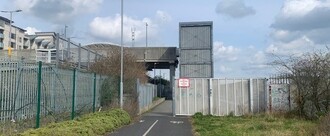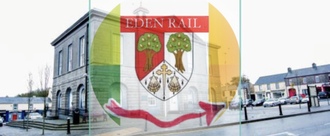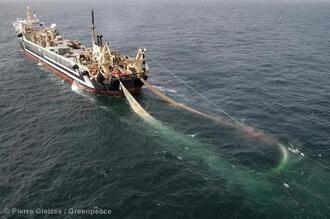- Featured
- Animal Rights
- Anti-racism
- Arts & Culture
- Children
- Climate
- Corporate accountability
- Crime
- Disability rights
- Economic
- Education
- Environment
- Food and Sustainable Production
- Gender Equality
- Governance and Transparency
- Health
- Housing
- LGBT Rights
- Mental health
- Northern Ireland
- Planning
- Privacy and Data Protection
- Rural Inequality
- Social Justice
- Trade
- Transport and Infrastructure
- Workers' Rights
- More
-
Ban Disposable Vapes IrelandDisposable Vapes are a product that have surged in popularity in recent years. These products are a threat to: 1. Public Health - With disposable vapes nicotine is delivered through an aerosol vapor which has been shown to have inflammatory effects on the respiratory system. As well, experts have warned of the potential of disposable vapes to act a gateway for smoking, especially for young people and adolescents. 2. The Environment - Disposable vapes are single-use items that contain plastic, electronics, and lithium-ion batteries. Disposable vapes are more frequently becoming a source of litter on our streets. This can result in harmful waste materials, such as mercury and cadmium, being leached into our environment, negatively impacting human health and biodiversity. These risks are simply not worth the convenience of a single use product! 3. Waste of Valuable Resources - The opportunity cost of global disposable vape production for the green economy is massive. The very materials such as lithium and copper are the precious materials needed for greener technology. It is estimated 90 tons of lithium and 1,600 tons of copper were used for the global production of disposable vapes in 2022. To put this into perspective, this amount of lithium is equivalent to the amount needed to produce 11,000 electric vehicles and is enough copper for 1.6 million electric vehicle charger units So let's put an end to the madness that is disposable vapes. Let's protect our health, our young people and our environment. Sign the Petition! Interested in reading more, check out the following source: https://www.independent.ie/irish-news/minister-defends-plan-to-ban-disposable-vapes-theyre-making-the-world-worse/42071990.html https://www.independent.ie/irish-news/politics/new-laws-to-ban-sale-of-vaping-products-to-under-18s/42141930.html https://web.archive.org/web/20220718111558id_/https://www.bmj.com/content/bmj/378/bmj-2021-065997.full.pdf https://www.ft.com/content/6d5ed980-8b91-4372-9e7e-14eda54193253,175 of 4,000 SignaturesCreated by Lyndsey O'Connell
-
Call for DCC to take part in #NoMowMayWe're calling for Dublin City Council to take part in #NoMowMay and cease mowing the grass of parks and green spaces during the month of May to support wildlife. Why DCC should take part in #NoMowMay: - Pollinators, like bees and butterflies, are the backbone of a healthy ecosystem. They rely on early flowering plants such as daisies, dandelions, and other wildflowers as a valuable source of nectar. - The longer grass provides welcome cover for foraging wildlife such as birds and hedgehogs, as well as a wide variety of insects to snack on. - A healthy lawn with long grass and wildflowers can help in the fight against climate change by absorbing pollution and locking carbon away in the soil. Dublin City Council has signed up for the All-Ireland Polinator Plan which recommends reducing mowing to 5 times a year (Once in mid April and then not again until end of May) but this clearly is not being observed. The All-Ireland Pollinator Plan notes reducing mowing as the most cost effective and impactful way to provide food for pollinators and other insects. Visible improvements have been made by DCC in parks around the city to encourage biodiversity and this is welcomed and appreciated! All we ask is that DCC ease up on mowing wherever possible to give our vital pollinators the best chance at survival. Further reading: Why bees matter? Bees are the most important pollinator of crops and native plant species in Ireland. They are a key component of our wildlife and one of the busiest, least appreciated work forces we have. A study from the Department of the Environment found that bees are worth €53m a year to the economy. In Ireland crops such as apples, strawberries, raspberries, tomatoes, blackcurrants, peppers, courgettes and pumpkins are reliant on bees for pollination. It is estimated that almost three quarters of our wild plants rely on insect pollinators, of which bees are most important. But bees are declining at a record level in Ireland. Due to habitat loss and the use of pesticides more than half of Ireland’s bee species have undergone substantial declines since 1980. The distribution of 42 species has declined by more than 50%. (Source: pollinators.ie) All-Ireland Polinator Plan: https://pollinators.ie/no-mow-may/ All-Ireland Polinator Plan for councils: https://pollinators.ie/wordpress/wp-content/uploads/2018/05/Councils_actions-to-help-pollinators-2018-WEB.pdf75 of 100 SignaturesCreated by Hannah Little
-
Clongriffin Dart AccessEncourage & facilitate use of public transport. Currently women, girls, people in wheelchairs, with bikes & buggies are either afraid or cannot access station.2,837 of 3,000 SignaturesCreated by Joan Hopkins
-
Get SUVs off our roadsSUVs are 20% more polluting regular cars. They are bigger, more dangerous and take up more room in parking spaces and on the street. Even SUVs that are fully electric are emissions-intensive, because of their battery size and the amount of energy they require. SUV and crossover sales are growing rapidly in Ireland: 55,000 were sold in 2021 (nearly 55% of all new cars). Many people do not actually need an SUV for their daily usage. SUVs popularity is driven more by fashion and marketing than practical considerations. Most SUVs are not designed for off-road use, and their larger size and weight can make them less efficient and more difficult to manoeuvre in urban areas.602 of 800 Signatures
-
Get SUVs off our roadsSUVs are 20% more polluting regular cars. They are bigger, more dangerous and take up more room in parking spaces and on the street. Even SUVs that are fully electric are emissions-intensive, because of their battery size and the amount of energy they require. SUV and crossover sales are growing rapidly in Ireland: 55,000 were sold in 2021 (nearly 55% of all new cars). Many people do not actually need an SUV for their daily usage. SUVs popularity is driven more by fashion and marketing than practical considerations. Most SUVs are not designed for off-road use, and their larger size and weight can make them less efficient and more difficult to manoeuvre in urban areas.575 of 600 Signatures
-
The Columban Way - Support Recognition as a European Cultural RouteThe Columban Way is a rural community driven project focused on connecting communities using low impact walking tourism to provide socio-economic opportunities where large ticket tourism offerings are scarce on the ground. The project is staffed through 100% volunteering with support from Carlow County Council, Carlow Tourism and Failte Ireland. With your support we will be able to continue our work towards Bangor, Co. Down and through Europe to Bobbio, Italy.79 of 100 SignaturesCreated by Damian Howard
-
Kiltalown Park and Jobstown PlaygroundWhat can be done? Kiltalown and Jobstown Parks and playground should be beautiful public spaces which the community and surrounding areas could be free to utilise. These public spaces require investment in resources to improve the facilities to allow these parks/playgrounds to be opened to our communities all year round. We are campaigning for: - Proper lighting to be installed within the parks/playground to increase community activity. - More facilities such as park benches and exercise equipment. - Our playground for the children of our communities upgraded and re-opened - Extend the paved walkways and incorporate the stream in kiltalown park. This would allow for a section of the park to be rewilded and would be a great asset for our local schools in order to have nature walks on our doorstep. - In other parks South Dublin County Council have invested vast amounts of funding and programs while failing to invest in our parks in South Tallaght, we demand our fair share of that funding and investments. - Park rangers also to discourage any inappropriate behaviour so that the parks/playground are used in a positive way, so people have a greater sense of security and these community areas attract more users.62 of 100 SignaturesCreated by Laura OReilly
-
Minister McConalogue: stop hidden overfishing, vote against undermining accurate EU catch reportingA healthy ocean means thriving wildlife, sustainable fisheries, and livelihoods for fishers, but a proposal to rewrite EU fisheries rules threatens to undermine all of this by legalising overfishing on a massive scale. It would allow dramatic underreporting of catches(1), but Minister McConalogue can prevent it from going ahead. This relaxing of the rules has been tried before, in the Baltic Sea(2), where it contributed to the collapse of vital fish populations and “incentivised” hidden overfishing(1). The biggest benefits would go mostly to vast supertrawlers like the Margiris, which has been recorded fishing off the Irish coast in recent weeks(3). The cost would be felt by the rest of us. This is our last chance to stop this. Join us in calling on Minister McConalogue to uphold Ireland’s obligation(4) to ensure the accuracy of catch reporting by blocking this dangerous proposal. It’s time to stand up for the ocean and everyone who depends on it. Find out more about why this petition is so important by visiting the BirdWatch Ireland website: https://birdwatchireland.ie/join-us-in-calling-on-minister-mcconalogue-to-oppose-eu-council-proposals-that-would-undermine-accurate-catch-reporting-and-risk-further-overfishing/ (1) https://www.theguardian.com/environment/2023/mar/16/loophole-quotas-overfishing-endangered-species-eu-papers (2) https://ejfoundation.org/reports/a-case-study-of-the-margin-of-tolerance-in-the-baltic-sea (3) https://www.independent.ie/news/environment/alarm-for-marine-life-and-local-fishing-crews-as-monster-super-trawler-fishes-in-irish-waters-for-a-third-day-42388536.html (4) https://curia.europa.eu/juris/document/document.jsf;jsessionid=3E9E9FB0F6680A682CD5505D13ECBF56?text=&docid=253727&pageIndex=0&doclang=EN&mode=lst&dir=&occ=first&part=1&cid=24683221,591 of 2,000 SignaturesCreated by Sinéad Loughran
-
WE NEED EDEN RAILThis will help people reduce their commute time, generate economic activity in Edenderry, and enhance Irelands rail network. Edenderry is a community in crisis. 70% of people commute out for work or education. Unfortunately, there is poor public transport options. 25% of people use bus, 2.5% get a taxi, and 42% use a private car. 10% of people use their car to travel to a train station nearby and get the train from there. This doesn’t have to be the way! 95% of people support Edenderry getting a train station. This overwhelming show of support can’t be ignored! Edenderry can only grow, thrive and prosper with a train station, and this will help with people’s commute and the environment. Join the fight today. Sign and Share this petition29 of 100 SignaturesCreated by Eden Rail
-
Save The Strawhall Woodland, Carlow, IrelandWe have come together to draw attention to a 28.87 acre site being sold in Carlow. Gateway & Adjoining Lands, Strawhall, Athy Road, Carlow Town, Co. Carlow is for sale by Greencore Group plc. Advertised as “Tremendous potential for further development” There is zero mentioning of any mature trees nor woodland within the advertisement; lot 6 has a well established woodland (Link below for sale details) We are calling on you to help us protect these trees from potential destruction. We want these woodland back as a public amenity. . We want to protect the wildlife under the Wildlife Act 1976 that call this place home already. Trees are vital to preserve and hugely important to biodiversity in the ongoing climate change. And as we have seen before, trees and woodlands removed overnight; we have come together to prevent this from happening. We need our trees! Though this is not solely about the trees and wildlife this is about the community coming together seeing the potential these lands already have for the community. For our future community. Protecting and enhancing our environment for future generations. And only a brisk walk away from our town centre. What we need? We need time. To buy time we need support. We need you to join us, sign our petitions, and share our social posts. Write your support to newspapers. Contact the local representatives. Contact the Carlow County Council. Spread the word for the love of our trees we are coming together! Already a large community has come together in Carlow and further nationwide to bring these woodlands into the public domain. We hope you will share some support and hopefully some day you will get to come visit 😉 Contact us [email protected] (Link to sale details below in "campaign website")532 of 600 SignaturesCreated by Tanya LaC-O'N
-
Ban super factory ships in Irish watersLet's send a clear message to the Irish Government and the European Commission that it's time to ban super trawlers and to ensure a sustainable fishery that supports coastal communities around Ireland and Europe.6,804 of 7,000 SignaturesCreated by Daniel Brosnan & Pádraig Mac Lochlainn

-
Create awareness of sustainable printing solutions in IrelandPrinting doesn't have to cost the Earth - we can use recycled paper and cardboard, non-toxic ink, set-up multi-use purposes for printed material, re-fill ink cartridges. Let's start with our ink - printing wholesalers to offer consumers ink-fills for costly cartridges.5 of 100 SignaturesCreated by Caroline Reapy

.png)










